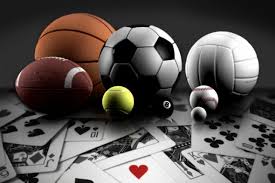How to Maximize Your Poker Success Strategies and Tips

How to Maximize Your Poker Game
If you’re looking to enhance your poker skills and achieve greater success at the tables, understanding the nuances of the game is key. Many players dive into poker hoping for instant success, but it takes a blend of skill, strategy, and psychological insight to thrive. Whether you’re a novice or a seasoned pro, here are some essential strategies to How to maximize your poker mostbet and maximize your poker potential.
1. Understanding Bankroll Management
Bankroll management is the cornerstone of a successful poker strategy. It’s essential to protect your capital and ensure you can play within your limits. Start by determining your total bankroll and set aside a portion dedicated solely to poker. The general rule of thumb is to maintain at least 20 times the buy-in amount for cash games and at least 100 times for tournaments.
This implies that if you’re playing $1/$2 cash games, your bankroll should ideally be around $400. Avoid playing at stakes beyond your bankroll capacity, as variance can lead to significant swings that threaten your ability to continue playing. Additionally, schedule regular reviews of your bankroll and adjust your stakes accordingly.
2. Choosing the Right Game and Table
Selection is crucial in poker. Not all games are created equal, and the skill level of your opponents can significantly affect your win rate. Look for tables with players who display less experience and poor strategies. Pay attention to the table dynamics and choose games where you can exploit your opponents’ weaknesses.
Online, this means assessing player statistics and profiles, while live poker involves observing table behavior and player interactions. Avoid tables with a lot of aggressive players or those who are skilled, as these can quickly diminish your chances of success. Always seek a game where you feel confident you can outplay your opponents.
3. Mastering the Basics of Strategy

Understanding fundamental poker strategies is non-negotiable for any serious player. Familiarize yourself with concepts like hand selection, position, and pot odds. Being selective with your hand choices, especially in early positions, allows you to play stronger hands and avoid tricky situations.
Position is equally critical in poker. Being ‘in position’ means you are one of the last players to act in a betting round, giving you more information to make informed decisions. Use this to your advantage by expanding your range of playable hands when you’re in a late position and tightening your range in early positions.
4. The Importance of Reading Opponents
Reading your opponents can provide invaluable insights into their playing styles and potential holdings. Pay attention to their betting patterns, body language, and general demeanor at the table. Skilled players can often pick up tells and nuances that indicate the strength or weakness of an opponent’s hand.
Additionally, consider employing poker software tools to track your opponents’ tendencies, especially in online play. Observing statistics such as their aggression factor, fold percentage, and call rates can help you adjust your strategies and exploit their weaknesses more effectively.
5. Utilizing Pot Odds and Expected Value
Understanding pot odds and expected value (EV) is essential for making profitable decisions in poker. Pot odds represent the ratio between the current size of the pot and the cost of a contemplated call. To make the most profitable choice, compare your pot odds to the odds of completing your drawing hand.
For instance, if the pot is $100 and your opponent bets $50, you are being offered pot odds of 2:1. If your drawing hand can win at least 33% of the time, calling would be profitable in the long run. Mastering these calculations can significantly enhance your game and decision-making process.
6. Adjusting to Different Opponents

Being adaptive is a hallmark of a great poker player. Different opponents will require different strategies, from tight aggressive players to loose passive ones. Learn to identify their tendencies and adjust your play style accordingly. For instance, if you’re up against a player who bluffs frequently, you might want to call down more often with a wider range of hands.
On the other hand, if you encounter a player who only bets with strong hands, you may want to play more cautiously and wait for premium hands to trap them. Flexibility in your strategy can greatly increase your chances of outplaying your opposition.
7. The Mental Game of Poker
The psychological aspect of poker is just as important as the technical side. Developing a strong mental game can help you withstand the emotional swings of poker. Avoid chasing losses, which can lead to poor decisions and bigger losses. Instead, focus on making the most mathematically sound decisions regardless of the end result.
Incorporate techniques such as mindfulness and emotional regulation into your routine to stay focused during games. Regularly take breaks when feeling overwhelmed, and ensure you maintain a healthy work-life balance outside of poker. A clear mind leads to better decision-making.
8. Continuous Learning and Improvement
No player can afford to stop learning. The best poker players continually analyze their game, learn new strategies, and stay updated on trends within the poker community. This could involve reading poker books, watching instructional videos, or participating in online forums to discuss strategies and experiences.
Consider engaging a coach or joining a study group where you can exchange ideas and insights with peers. Analyzing your past hands and decisions can also shed light on areas needing improvement. In poker, there’s always room for growth.
Conclusion
Maximizing your poker potential is a multifaceted process that requires a thorough understanding of the game’s mechanics, effective strategies, and ongoing emotional discipline. By focusing on bankroll management, game selection, strategy mastery, and mental resilience, you’ll increase your chances of success significantly. Remember, the path to becoming a successful poker player is a journey of lifelong learning.